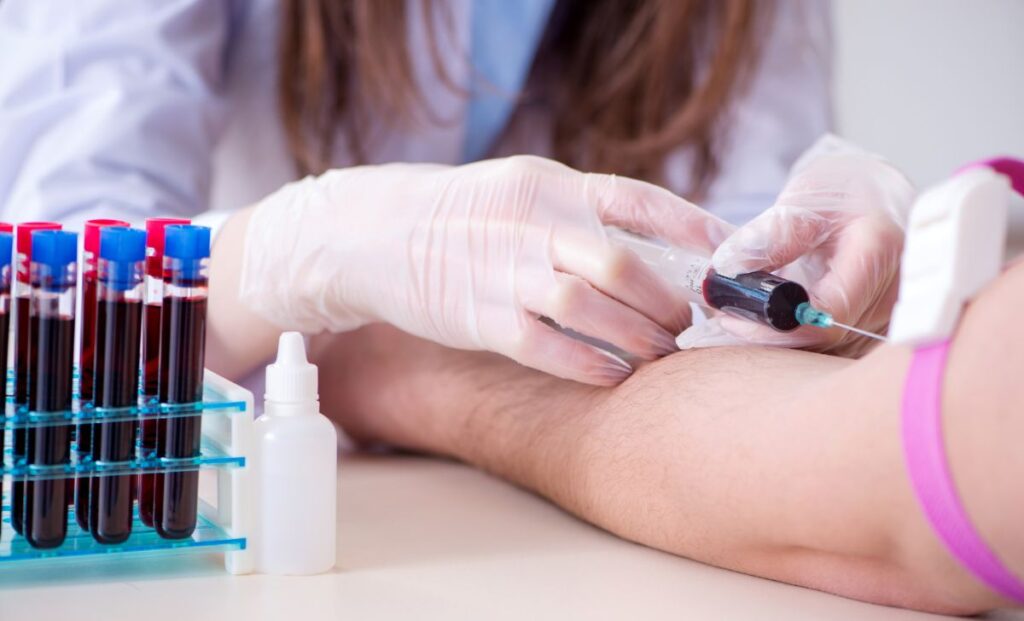Blood donation is a noble act that saves countless lives every day. Regular blood donors are unsung heroes who contribute significantly to the healthcare system. Their selflessness and commitment play a crucial role in maintaining a steady supply of blood for medical treatments, emergencies, surgeries, and more. In this blog, we will delve into the science behind blood donation, its benefits, and why regular donors are rightfully considered heroes.
Understanding Blood Types and Compatibility
Blood is classified into different types based on specific antigens on the surface of red blood cells. The main blood group systems are ABO and Rh. For successful transfusions, it’s essential to match the donor’s blood type with the recipient’s to prevent adverse reactions. Regular donors help maintain a variety of blood types in the supply, ensuring a better chance of finding compatible blood for patients in need.
The Lifespan of Blood Components
Blood is composed of various components, including red blood cells, plasma, platelets, and white blood cells. Each component has a different shelf life, making a steady supply crucial. Red blood cells, for instance, can be stored for up to 42 days, while platelets have a shelf life of just 5 days. Regular donors help prevent shortages of these essential components, enabling medical professionals to treat patients promptly.
Health Benefits for Donors
Regular blood donation offers health benefits to the donors themselves. Donating blood can help reduce the risk of certain health issues, such as hemochromatosis, a condition characterized by excess iron buildup. Regular donation can also improve cardiovascular health by reducing blood viscosity and promoting the production of new, healthier blood cells.

The Heroic Impact
Regular blood donors are heroes because their commitment directly impacts lives. One donation can save up to three lives. Whether it’s a trauma victim, a cancer patient, someone undergoing surgery, or an individual with a chronic illness, donated blood can be a lifeline. Regular donors contribute to a stable blood supply, ensuring that hospitals can respond to emergencies and planned medical procedures without delay.
National and International Health Preparedness
Blood donation is a critical component of a country’s health preparedness. Natural disasters, accidents, and unexpected medical needs require a robust blood supply to handle surges in demand. Regular donors create a safety net, making it easier to manage such crises effectively and save lives in dire situations.
Raising Awareness and Encouraging Others
Regular blood donors inspire others to join the cause. Their commitment shines a light on the importance of blood donation, encouraging new donors to step forward. By leading by example, these heroes create a ripple effect that strengthens the overall blood donation community.
Filling Seasonal and Cultural Gaps
Blood shortages can often occur during certain seasons or cultural events when regular donors may be unavailable. Regular donors who commit year-round help bridge these gaps, ensuring a consistent supply of blood regardless of holidays or specific times of the year.
Treating Chronic Illnesses
Many individuals with chronic conditions like sickle cell disease, thalassemia, and leukemia require regular blood transfusions to manage their conditions. Without regular donors, these patients would struggle to access the treatments they need to lead healthier lives.
Responding to Mass Casualties
In the unfortunate event of a mass casualty incident, such as a natural disaster or a major accident, the demand for blood surges dramatically. Regular donors provide a foundation of support during these emergencies, helping healthcare systems cope with the sudden influx of patients in need of blood.
Reducing Blood Shortages’ Impact on Healthcare
Blood shortages have far-reaching consequences in the healthcare system. Without a sufficient supply of blood, hospitals may face the difficult decision of postponing critical medical procedures, surgeries, and treatments. This delay can lead to worsened conditions for patients, prolonging their suffering and recovery time. Regular blood donors play a vital role in preventing these disruptions. By consistently donating blood, they contribute to a stable blood supply that can readily meet the demands of healthcare facilities. Their commitment ensures that patients can access necessary medical care without unnecessary obstacles, potentially saving lives and alleviating suffering.
People Also Read: The Ethical Responsibility of Giving: Why Donating for the Poor is Crucial
Enabling Complex Medical Procedures
Medical advancements have enabled sophisticated treatments that have transformed lives. However, many of these complex procedures, such as organ transplants, cardiovascular surgeries, and cancer therapies, rely heavily on a sufficient supply of blood. Blood products are integral to these procedures, aiding in oxygen transport, clotting, and immune system support. Regular blood donors make these transformative treatments possible by providing the necessary resources for medical teams to perform these interventions safely and effectively. Their contributions directly impact patients’ chances of successful recovery and improved quality of life.
Inspiring Future Generations
The influence of regular blood donors extends beyond their immediate actions. Their dedication serves as a beacon of inspiration for younger generations. As young individuals witness the tangible impact of blood donation through the stories of lives saved, they are more likely to consider participating themselves. The legacy of heroes who regularly donate blood continues as new donors step forward, creating a cycle of generosity that resonates through time. This intergenerational transfer of compassion highlights the enduring power of acts of kindness and emphasizes the potential for positive change in the world.
Contributing to Global Health Initiatives
Health challenges know no borders, and the impact of blood donation transcends geographical limitations. Regular blood donors contribute not only to their local communities but also to global health initiatives. Their donations can be used to support medical needs in various parts of the world, especially in regions with limited resources. By helping address health disparities and medical emergencies in far-reaching locations, these donors showcase the universal nature of compassion and solidarity, fostering a sense of global interconnectedness.
Supporting Vulnerable Populations
Certain individuals have unique healthcare needs that require specialized blood components. Premature infants, for example, often require small amounts of specific blood products to ensure their survival and healthy development. Elderly individuals and those undergoing cancer treatments also benefit from specific blood components that are more readily available due to regular donors. By providing these critical resources, regular donors directly contribute to the well-being of vulnerable populations, helping them overcome health challenges and improving their overall quality of life.
Supporting Research and Medical Advances
Blood donation isn’t just about immediate transfusions; it also contributes to ongoing medical research. Blood and its components are essential for scientific studies, developing new treatments, and advancing medical technologies. Regular donors indirectly support medical progress by ensuring a steady supply of blood for research purposes.
Developing Lifelong Habits of Giving
Regular blood donors often develop a lifelong habit of giving back to their communities. This spirit of altruism can extend beyond blood donation, inspiring individuals to engage in other forms of philanthropy and community service, thereby creating a positive and lasting impact.
Enhancing Community Solidarity
The act of blood donation fosters a sense of community and solidarity. Donors from diverse backgrounds come together to contribute to a shared cause, breaking down barriers and uniting people in the effort to save lives. This sense of unity and shared purpose is a testament to the power of collective goodwill.
Overcoming Fear and Discomfort
For some, the act of donating blood may evoke fear or discomfort. Regular donors overcome these emotions to selflessly help others in need. Their commitment shows that compassion and empathy can triumph over personal apprehensions, setting a powerful example for us all.
Voluntary Nature of Blood Donation
Blood donation is entirely voluntary. Regular donors choose to give without any expectation of personal gain. Their willingness to help purely out of empathy and concern for others underscores their heroism and reinforces the values of selflessness and kindness.
A Lifelong Legacy
Regular blood donors leave behind a lasting legacy. Their contributions resonate beyond their lifetimes, as the lives they touch continue to flourish. The recipients of their blood donations, their families, and society at large remember and honor their selfless actions.
To Conclude…
Regular blood donors are true heroes whose impact reverberates through healthcare systems, communities, and the lives they touch. They embody the essence of altruism, embodying the belief that one individual’s compassion can transform the lives of many. As we celebrate these heroes, let us acknowledge their indispensable role in building healthier, more resilient societies. Their commitment and generosity remind us that small acts of kindness can ripple into immeasurable change.
